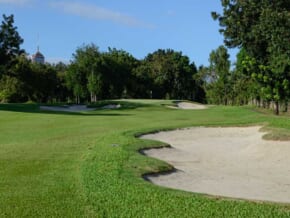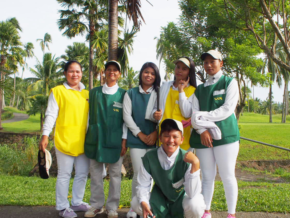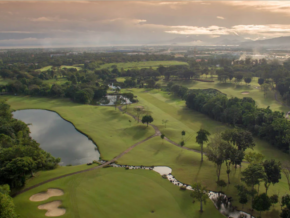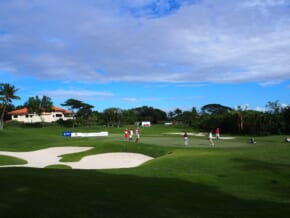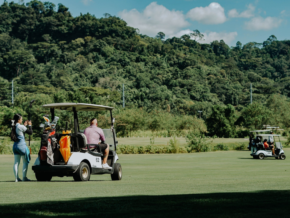Learn about the Ifugao culture at Banaue Ethnic Village & Pine Forest Resort


ENTRANCE TO THE VILLAGE. An entrance fee of P50 (other separate charges for cottage and pool use, not included) is needed to go inside the village.
When in Cordillera, it’s always best to see and learn more about their historic culture for they are known to maintain their traditions in their community. In Ifugao, the Banaue Ethnic Village is one of the places where you should go to, to know about the Ifugao’s culture further.
Established in the 1990s, the village was made as a vision of the Tourism Department to let people have the chance to see that vanishing traditions in the North. Hence, The Banaue Ethnic Village was made. Situated just about 6 kilometers from the town proper, is where you will find this village-lodging sanctuary. One can rent a tricycle (about P200) to go here. Its distance from the town makes it a good place to unwind.



THE EVOLUTION OF IFUGAO DWELLINGS. (1) Abong Tinodmok (Simplest dwelling without walls, only roof); (2) Abong Kinibat (dwelling that uses sticks for its walls); (3) Abong Guina-ob (elevated type that uses wood for floors and wall); and (4) Abong-Bali (modern elevated type on shoulder level)

ETHNIC VILLAGE MUSEUM. Here, they display and sell Ifugao wood carvings.
At the Ethnic Village, you will see the evolution of the “No-Nail Ifugao Houses.” Here, you will see 4 types of Ifugao dwelling (called abong), which are less permanent and are said to be one of the most clever and nearly perfect architectural constructs ever devised by man. These native houses constructed pre-Spanish era which were built by unschooled carpenters can be dismantled and transferred to a new place without being destroyed. American anthropologist Otley Beyer then stated that “No-Nail Ifugao house was the first pre-fabricated house in the world.” As you take a look of each house you will be amazed at how it evolved from no walls to elevated types of dwelling. You’ll also see a “Bintawan” or an open court stone seats which the Ifugao used for trials when they did not have prison cells before. Banaue Ethnic Village also houses a mini museum where you can see and buy wood carvings and handicrafts.

TRADITIONAL COTTAGES. These dwellings can accommodate guests.


INSIDE THE PLACE. Aside from the cottages there’s also a modern house where the restaurant and family rooms (P1,600 to P3,200) are found.
Aside from these attractions, there is also a Pine Forest Resort where you can stay for accommodation. It was named Pine Forest because the place is surrounded by pine tree forest (called Muyung) which gives the breeze. They offer native lodging houses and they also have modern ones for accommodation. For amenities, they have a pool, cottages, and a play area for those who want to have picnic or do recreational activities. They also have an in-house restaurant which serves Filipino food.
Banaue Ethnic Village is really worth the visit in Ifugao as you will learn more about its culture, and you will also enjoy its beautiful scenery away from the busy city.
Price for walk-ins: P50.00 Price for additional person in lodging: P350.00
General Information
